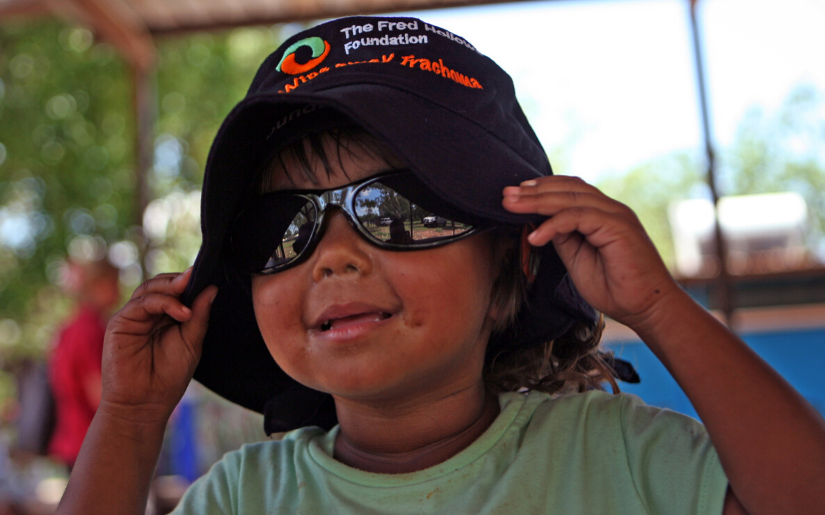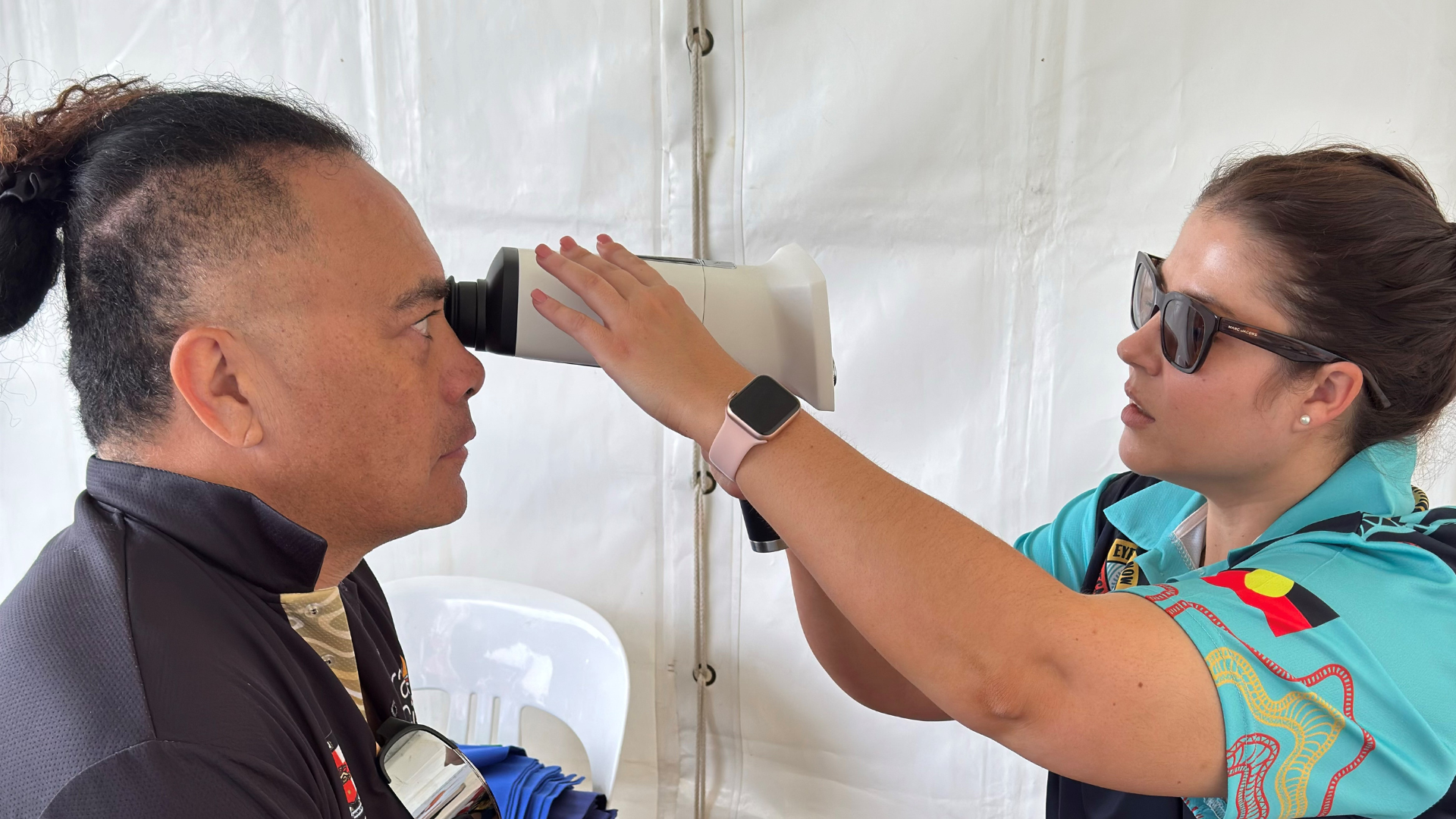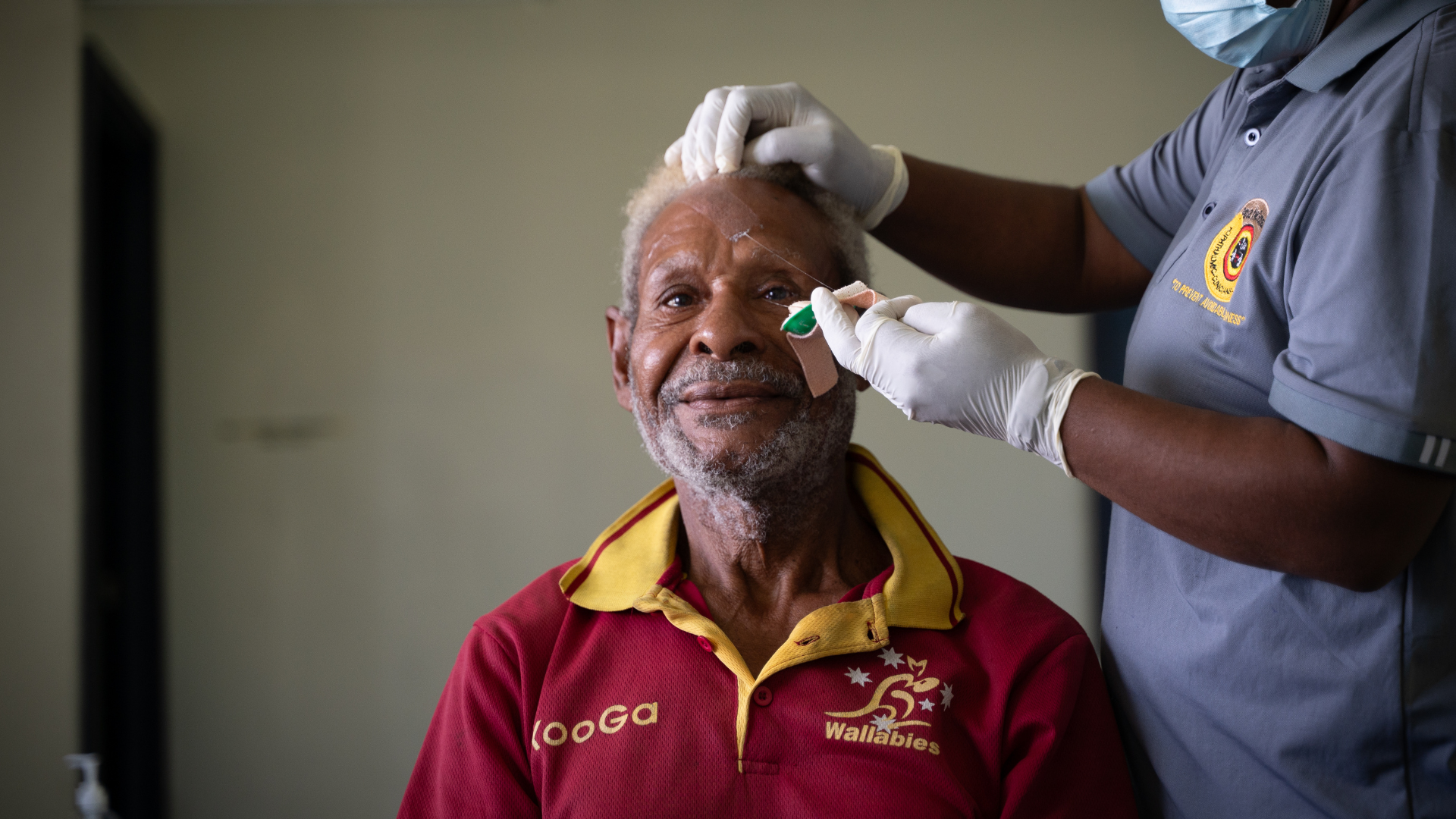Will blue light from electronic devices impact my eye health?

A lot of people rely on their cell phones or electronic products nowadays for work, study or entertainment. When our eyes get tired after using these devices for a long time, we start to question whether blue light may affect our eye health. Consumers who are worried tend to buy blue light blocking glasses, but is this necessary?
Ophthalmologist and Advisory Committee member of The Fred Hollows Foundation Dr Godfrey Lam points out that there is currently no scientific evidence to support that blue light from computer screens or digital devices affects our sight. Rather, blue light from the sun deserves more attention and wearing sunglasses is necessary to protect our eyes.
DOES BLUE LIGHT FROM DIGITAL DEVICES ACTUALLY HURT OUR EYES?
The COVID-19 pandemic is causing more people to work at home and take online classes. Parents are concerned about their children’s eye health and theirs, too, as they have to work from home.
Dr Lam says in an interview with The Fred Hollows Foundation that at this time there is no strong scientific basis to prove that blue light from electronic products will harm people’s eyes. He says that this does not mean the continuous use of electronic products is harmless to us.
He says: “It is that blue light from digital products is not high enough to harm our eyes.” However, he reminds us to pay more attention to how sunlight that we are exposed to everyday may hurt our eyes. 。

BLUE LIGHT FROM THE MIDDAY SUN IS HIGHER THAN THAT FROM ELECTRONIC PRODUCTS
Sunbathing is the hobby of many Hong Kong people. Dr Lam points that most people underestimate the harm from direct sunlight to the eyes. “Blue light from the sun is the strongest at noon, which is stronger than that from electronic products by a hundred thousand times. Long-term exposure to the sun may damage our eyes,” he said.
Dr Lam also reminds people to reduce the use of electronic products at night because blue light can disturb our sleep quality and cycle. The human body's sleep routine follows a 24-hour circadian rhythm, which controls our sleep cycle and hormone secretion. However, if our eyes receive too much blue light at night, it will change the circadian rhythm and affect our quality of sleep and even cause insomnia.
It seems that while we may not need blue light blocking glasses, wearing sunglasses and avoid using digital devices before sleep is certainly good for our health and eye health.

DISCLAIMER:
The content on this page is not intended to be medical advice. For medical advice, please contact your local health professional. All statistics quoted use the most recent information available, to the best of our knowledge.
Related articles

Michael Amendolia’s favourite photos of sight restored

Koori Knockout raises eye health awareness among thousands on World Sight Day


